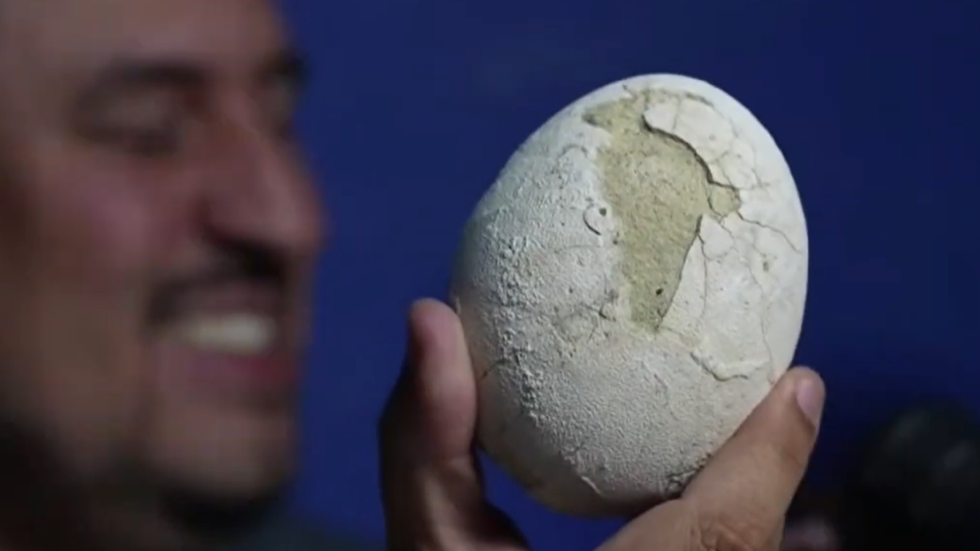Scientists hail 'complete surprise' as DINOSAUR egg is found by world-famous river
The egg looked like it had been laid yesterday - despite dating back more than 70 million years
Don't Miss
Most Read
Latest
A perfectly-preserved ancient dinosaur egg has been unearthed by scientists in Argentina.
The egg, which is thought to be more than 70 million years old, was unearthed near General Roca in Patagonia - by the banks of the Rio Negro.
Scientists were stunned when they made the discovery on October 7, with a team from Argentina's Museum of Natural Sciences announcing it during a live broadcast.
One said: "It was so well preserved that it looked recent."
TRENDING
Stories
Videos
Your Say
But the smooth, oval egg was covered in markings which revealed its prehistoric origins.
The discovery was made as part of Cretaceous Expedition I, a scientific mission led by Argentina's National Council for Scientific and Technical Research (Conicet).
The expedition was also supported by the Azara Foundation, National Geographic and the Government of Rio Negro.
Though other dinosaur eggs have been discovered, including some in Patagonia, the undamaged condition of this specific discovery is a rarity.

The egg is thought to be more than 70 million years old
|YOUTUBE
It is thought the egg belonged to the Bonapartenykus genus, a small, carnivorous theropod which inhabited the area during the late Cretaceous period.
Remains of other reptiles and ancient mammals were also found surrounding the egg, leading experts to believe the area may have been a nesting ground.
Researcher Gonzalo Munoz told National Geographic: "It was a complete and utter surprise. It's not common to find the egg of a possible carnivorous dinosaur, much less in that state.
"The happiness was spectacular for the team."
DINOSAUR DISCOVERIES - READ MORE:
- New dinosaur species is found in Britain as researchers hail 'remarkable' discovery
- Scientists unveil first images of 'jaw-droppingly weird' spiked dinosaur 'unlike ANY other'
- New 'apex predator' dinosaur species discovered with crocodile bones still in its mouth
- Dinosaur mystery solved after 150-million-year-old teeth reveal secret diets

The researchers were stunned by the well-preserved condition of their discovery
|YOUTUBE
Explaining why carnivorous dinosaur eggs are less likely to be found, he added: "They're much more delicate eggs, with thinner shells that are more likely to be destroyed."
There are now plans for the team to run scans in order to determine if there is any embryonic material left inside the egg.
If an embryo is found, it would mark an important paleontological breakthrough that could reveal secrets about how carnivorous dinosaurs evolved, developed and then hatched.
The discovery was live-streamed to audiences around the globe using state-of-the-art satellite technology.
Expedition leader Federico Agnolin said the aim was to allow viewers to watch history being made, adding: "Science can reach many people whom we could not reach before."
Once the research on the egg has been completed, it will be displayed at a museum in Patagonia to allow visitors to see one of the best-preserved dinosaur eggs ever found.











